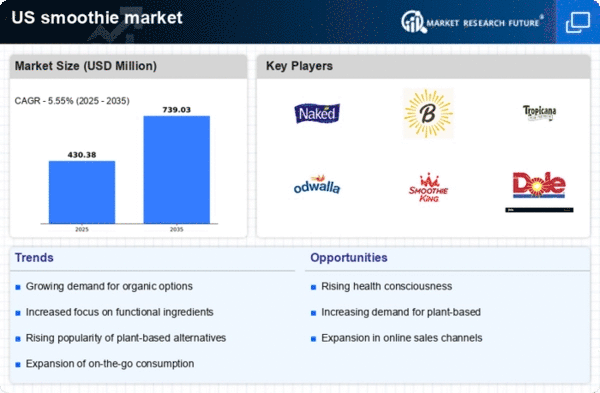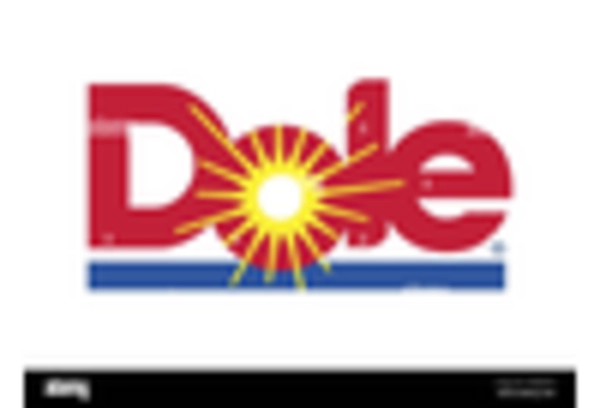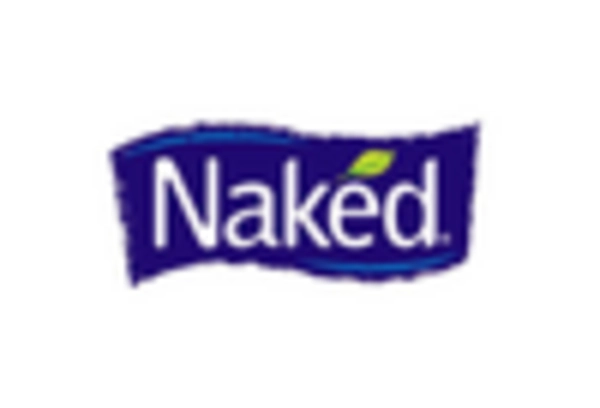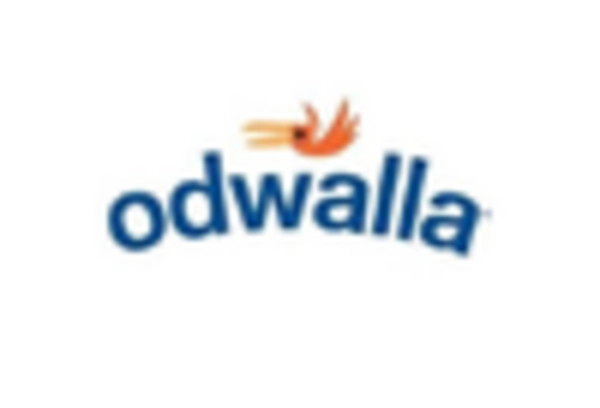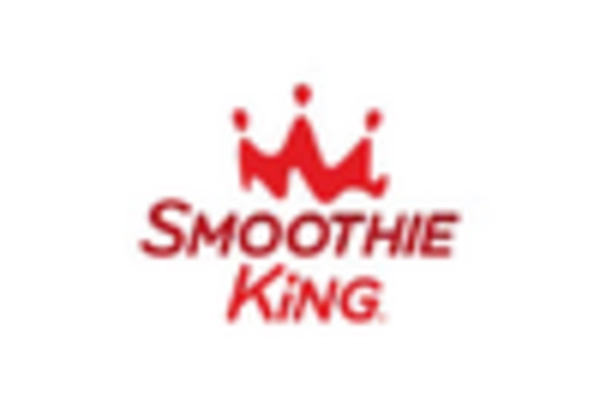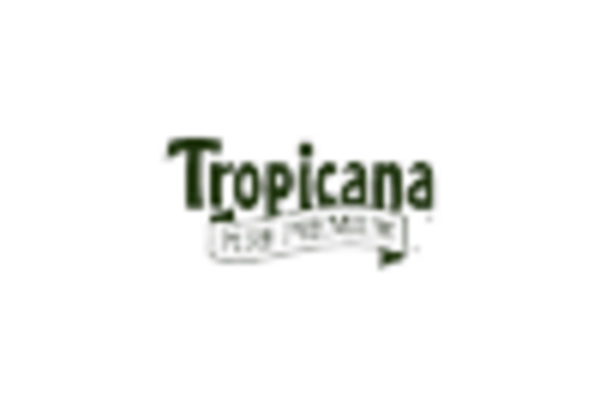Innovative Packaging Solutions
Innovative packaging solutions are emerging as a key driver in the smoothie market, appealing to environmentally conscious consumers. Brands are increasingly adopting sustainable packaging materials, such as biodegradable and recyclable options, to align with consumer preferences for eco-friendly products. This shift is particularly relevant as studies indicate that over 60% of consumers in the US are willing to pay a premium for products with sustainable packaging. The smoothie market is likely to see a rise in brands that prioritize sustainability, which could enhance their market position. Furthermore, advancements in packaging technology, such as resealable pouches and single-serve containers, are making smoothies more convenient for consumers, thereby potentially increasing sales.
Expansion of Distribution Channels
The smoothie market is experiencing a notable expansion in distribution channels, which is enhancing accessibility for consumers. Retailers, including supermarkets, convenience stores, and health food shops, are increasingly stocking a diverse range of smoothie products. This trend is supported by the rise of e-commerce platforms, allowing consumers to purchase smoothies online with ease. In 2025, it is estimated that online sales will account for approximately 15% of the total smoothie market revenue in the US. This diversification in distribution not only increases consumer reach but also encourages brand loyalty as customers discover new products. The convenience of purchasing smoothies through various channels is likely to contribute to sustained growth in the market.
Increased Focus on Functional Beverages
The increased focus on functional beverages is shaping the smoothie market, as consumers seek products that offer health benefits beyond basic nutrition. Smoothies fortified with vitamins, minerals, and probiotics are gaining traction among health-conscious individuals. In 2025, it is estimated that functional smoothies will represent approximately 25% of the total market in the US. This trend is indicative of a broader consumer shift towards products that support overall wellness, including immune health and digestive health. The smoothie market is likely to see brands developing innovative formulations that cater to these health needs, thereby enhancing their appeal and driving sales.
Rising Demand for Nutritional Beverages
The increasing consumer inclination towards health-conscious choices is driving the smoothie market. As individuals become more aware of the nutritional benefits of smoothies, the demand for these beverages is expected to rise. In 2025, the market is projected to reach approximately $4 billion in the US, reflecting a growth rate of around 8% annually. This trend is fueled by the desire for convenient, on-the-go nutrition, particularly among busy professionals and health enthusiasts. The smoothie market is likely to benefit from this shift as consumers seek products that align with their health goals, such as weight management and enhanced energy levels. Additionally, the incorporation of superfoods and functional ingredients into smoothies is becoming increasingly popular, further propelling market growth.
Growing Popularity of Plant-Based Ingredients
The growing popularity of plant-based ingredients is significantly influencing the smoothie market. As more consumers adopt vegetarian and vegan diets, the demand for smoothies made with plant-based components is on the rise. In 2025, it is projected that smoothies containing plant-based proteins and dairy alternatives will account for nearly 30% of the market share in the US. This trend reflects a broader shift towards healthier, more sustainable eating habits. The incorporation of ingredients such as almond milk, pea protein, and various fruits and vegetables is appealing to a diverse consumer base. The smoothie market is likely to benefit from this trend as brands innovate to create delicious, plant-based options that cater to evolving dietary preferences.


